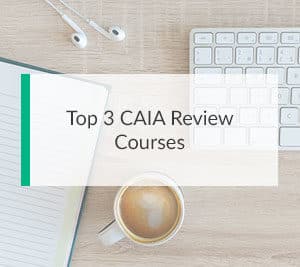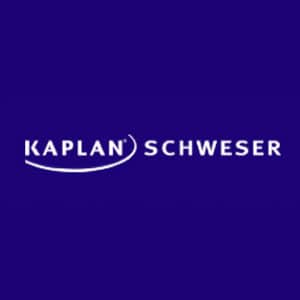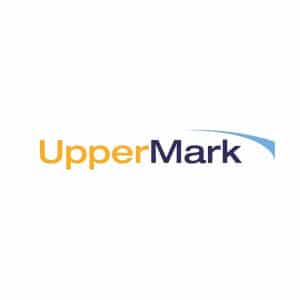
The truth about CIA exam prep: It’s not just what you study, but how you study.
And while working towards your Chartered Alternative Investment Analyst (CAIA) certification, you’ll likely find you need some extra help.
Using a prep course for major exams is crucial, and here’s why:
Imagine the weight of months, if not years, of effort and anticipation coming down to a single moment—the day of your exam. Every late-night study session, every weekend sacrificed, and every moment of doubt all leading to that one opportunity to prove yourself. Without adequate preparation, the risk isn’t just failing an exam; it’s the crushing feeling of disappointment, the time lost, and the financial cost of retaking the test.
Now, think of the contrasting emotion—the euphoria of seeing a passing score, knowing that every ounce of your hard work paid off, and the doors of opportunity swinging open. That’s the difference a prep course can make. It’s not just about information; it’s about structured learning, targeted practice, and mastering the intricacies of exam techniques. Without it, you’re essentially venturing into unfamiliar territory, blindfolded, hoping for the best. With a prep course, you’re equipped with a map, a strategy, and the confidence to navigate the challenges.
Fear the regret of being unprepared, but also yearn for the joy of success. Both emotions underscore why investing in a prep course isn’t just a choice; it’s a necessity.
But with so many CAIA study materials out there, how are you supposed to choose the best one?
Luckily for you, we’ve spent time checking out what’s available and have compiled a list of the top CAIA prep courses to help save you time and money!
Listed below are our top three CAIA review course materials on the market.
The Best Chartered Alternative Investment Analyst Exam Prep Courses
| AIS RANKING | #1 | #2 | #3 | |
|---|---|---|---|---|
| COURSE NAME |  |  |  | |
| PRICE | $699 | Check Price | $849 | |
| PASS GUARANTEE | Yes | Yes | Yes | |
| STUDY RESOURCES | Webinars, Self-Study, Mock Exams | Video Lectures, Study Guides, Practice Questions, Mock Exams | Webinars, Self-Study, Mock Exams | |
| LIVE CONTENT | Yes | Ask a Teacher | Yes | |
| ACCESS PERIOD | Current Exam Period | Live Content | Current Exam Period | |
| SUPPORT | Phone, Email, Live Chat | Phone, Email, Live Chat | Phone, Email | |
| DISCOUNT | No Discount | No Discount | ||
| GET STARTED | Full Course | Full Course | Full Course |
1. Kaplan CAIA Review Course

Ever wondered how to optimize your CAIA exam study routine without wasting a minute, or who you’d turn to when tough concepts like venture capital baffle you? Kaplan Schweser might just have the answers with its meticulous study tools and on-call expert assistance. Get a taste of this premium experience with their free five-day trial, sampling their QBank and SchweserNotes. But, a word of caution: top-notch features come with a top-tier price tag.
Pro – Effective Study Routine
A big focus for Kaplan Schweser is creating effective tools for managing your study routine. The Online Performance Tracker and Study Calendar are designed to help you build a schedule and be as prepared as possible for your exam. Furthermore, these will update based on how well you’re doing at any given part of the review in order to maximize your learning. With this technology at your side, you never need to be afraid of wasting your time.
Pro – Instructor Assistance
If authentic CAIA Association-based study materials aren’t enough for you, then check this out. Kaplan Schweser also employs intelligent and qualified instructors who will answer any questions you have. Asking questions is a great way to understand tough concepts like private equity or venture capital. Questions can be submitted at any time and will be answered within 24 to 48 hours. Consequently, you’ll never be lost with these experts on call!
Pro – Free Trial
If you’re unsure about whether or not this course is right for you, Kaplan Schweser offers a free five-day trial. Included with the trial are samples of the QBank and SchweserNotes offered in the main course. Additionally, you’ll still have access to instructor support during all five days of prep. Most courses don’t offer that many features during their trial period, so this works as a perfect snapshot of what you’ll be working with.
Con – Expensive
Unfortunately, this is the most expensive course on this list. For access to all of the great included features, you’ll have to pay $999 before discounts for the Premium Plus course. While there are cheaper courses offered by Kaplan, they don’t have the same quality as the top options. However, if you can afford it, this is a good option. Otherwise, consider the more affordable options.
Bottom Line
Kaplan Schweser’s CAIA exam prep emphasizes adaptive study tools and expert instructor support. With a valuable five-day trial and a commitment to student understanding, it’s a top-tier option, albeit at a premium price. For those seeking quality, it’s a solid choice.
2. Wiley CAIA Review
Wiley’s CAIA exam prep, once a trusted choice, has recently been acquired by UWorld. Given the unpredictability this transition introduces, coupled with concerns about the continuity and quality of the course, we currently advise potential students to approach with caution. Until the dust settles, it may be wise to consider alternative providers.
Embarking on the CAIA journey? Wiley’s CAIA prep course seems promising, with features like predictive scoring that not only gauges your readiness for the exam but also illuminates its accuracy. Coupled with the convenience of a robust mobile app that ensures uninterrupted, on-the-go studying, Wiley seems to be in sync with the digital age.
However, it’s not without its challenges; the absence of live content might limit interactive learning opportunities, and the recent acquisition by UWorld raises questions about its consistent quality. Dive in to weigh if Wiley’s offerings align with your study needs amidst the evolving test prep landscape.
Pro – Predictive Scoring
Your course will generate a potential score range for you as you reach certain thresholds. That way, you can see how close you are to being ready for the exam at any time. You can also see what information is being used to generate your potential scores, which lets you know how accurate your potential scores are.
Pro – Mobile App
Wiley understands that it can be difficult to find the time to sit down and study in front of your computer for an extended period of time. That’s why they’ve created a mobile companion app for their course. All course content can be downloaded and viewed offline through the app. Plus, progress is saved automatically once you reconnect, so you can pick up where you left off in the desktop version.
Con – No Live Content
Wiley doesn’t offer any live classes or course materials for their CAIA courses at this time. Instead, you can ask a question to your teacher and have it answered within 24 hours. Even though that adds a personal touch, it’s not quite as engaging as being able to ask questions in a live classroom setting.
Con – Changing Ownership
In the volatile world of test prep, a change in ownership can signal significant shifts in course quality, direction, and content delivery. Recently, Wiley’s CAIA prep has been absorbed by UWorld, casting a veil of uncertainty over the product’s future and its alignment with students’ needs. Prospective learners might find themselves in uncharted waters, unsure if the course will retain its original standards or if they’ll be faced with sudden, unexpected changes mid-preparation.
Bottom Line
While Wiley’s CAIA prep boasts predictive scoring and a handy mobile app for flexible learning, the lack of live content may hinder real-time interaction. Coupled with recent ownership changes after its UWorld acquisition, potential users should approach with caution, weighing the uncertainty against its features.
3. UpperMark CAIA Study Materials

Pro – Flexible Pricing
The first thing you’ll notice about UpperMark is their extremely varied and flexible study plans. You can pick and choose which aspects of the course you want to pay for. Flashcards, study guides, and course topics each have different price options. You can even choose whether or not to add the final review course. This can lead to a price as low as $499 or as high as $1029. Ultimately, this a-la-carte structure means that whatever price you pay is decided by what you need.
Pro – Samples and Demos
UpperMark has a set of ten demos and samples, which can be helpful if you’re unsure whether the course is right for you. These freebies include a test course, flashcards, study handbooks, formula sheet, and test bank. Basically, all aspects of UpperMarks materials can be tried ahead of time before deciding on a purchase. This shows a great level of transparency that other companies may not share.
Con – Limited Live Content
Unfortunately, most of UpperMark’s content is on-demand instead of live. While competitors may focus on their live webinars, UpperMark instead developed their wide range of study and pricing options. Hence, they may not have all the bells and whistles of their competitors, but their courses are still a solid option.
Con – Overemphasis on Formulas
Some learners feel that Uppermark’s CAIA program leans too heavily on formulas and equations, often at the expense of broader, crucial topics. This intense focus might detract from a well-rounded understanding, leaving students well-versed in calculations but potentially underprepared for conceptual and application-based questions that are integral to the CAIA exam.
Con – Questionable Qbank Relevance
Users have expressed concerns over Uppermark’s Qbank, noting that it delves into an excessive range of intricate details, often missing the broader, conceptual questions that other providers, including the CAIA’s own practice exam, cover. Despite thoroughly studying specific chapters, some found the corresponding section’s questions to be irrelevant or poorly crafted. While there are indeed valuable questions that might appear on the exam, the overall efficacy of the Qbank remains uncertain for many.
Bottom Line
UpperMark stands out with its flexible pricing and transparent samples, but it’s not without flaws. Its formula-heavy approach may overshadow crucial CAIA topics, and the limited live content paired with concerns over Qbank relevance makes it a mixed bag. While it has merits, potential users should consider the drawbacks before diving in.
Frequently Asked Questions
It’s commonly recommended that people study for 200 hours before the CAIA exam. However, that number can vary between students based on their experience level and study methods.
According to Payscale, CAIAs typically make around $109,000 as an annual salary.
The CAIA Association states that it will take you roughly 400 hours to study for and complete both levels of the CAIA exam. Ideally, you want to spend the majority of that time with a well-made test prep course that offers either online or in-person instruction.
CAIAs need either a bachelor’s degree in finance or four years of experience in the financial industry. This means you can feasibly become a CAIA before earning a college degree, although it’s still important for finding work in the industry.
Both certifications are commonly ranked as being as difficult as a master’s degree course. However, the CFA exam is split into 3 parts instead of 2, like the CAIA test. With that in mind, the CFA exam is the harder one.
CAIA memberships must be renewed every year before May 31.



